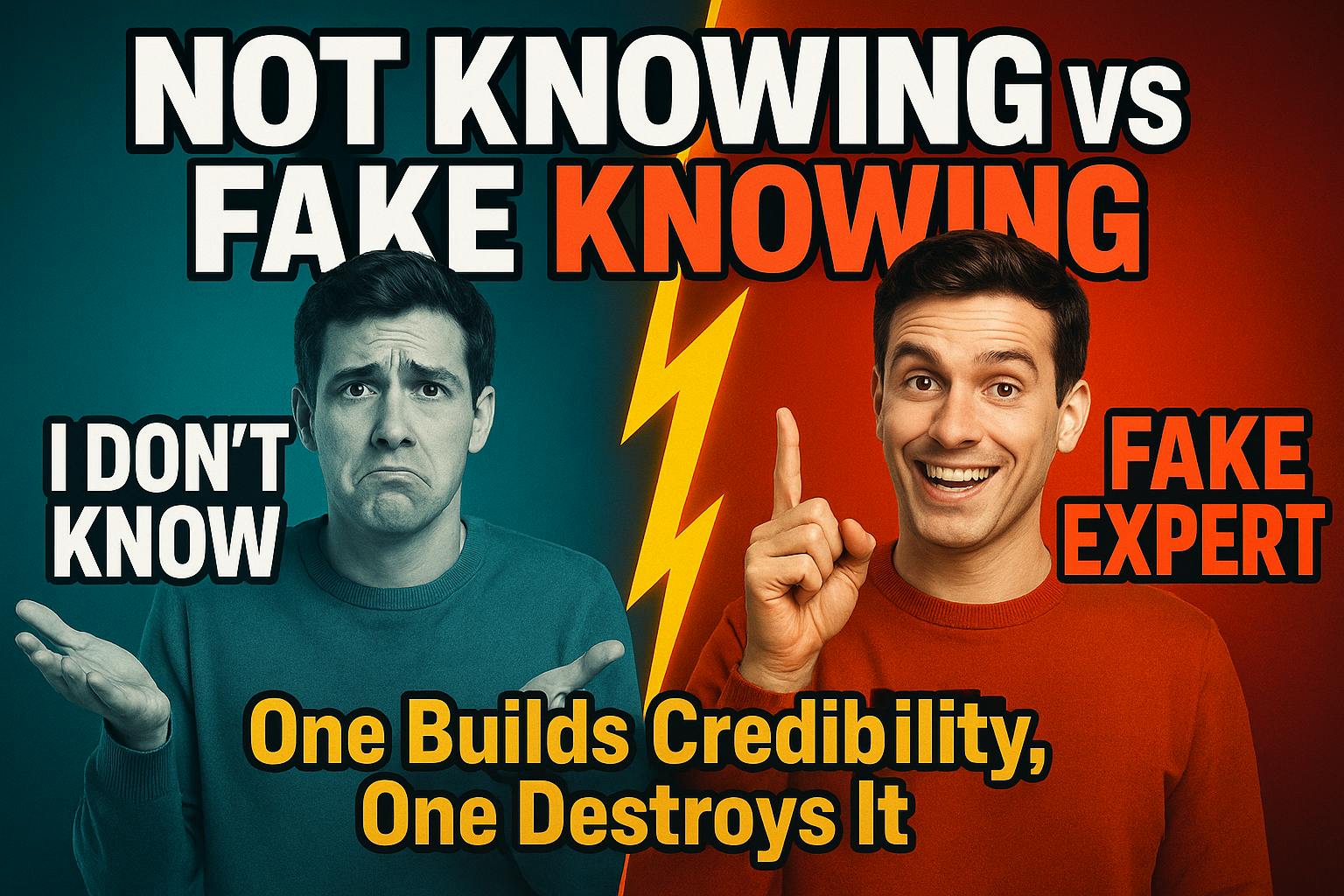Stop Pretending You Know Everything

There’s a difference between not knowing and pretending to know.
One builds credibility. The other destroys it.
Not knowing vs. fake knowing
Not knowing is a temporary state. It’s the honest admission that you lack information, experience, or understanding about something specific. It’s uncomfortable but actionable—you can learn, research, ask questions, or find someone who does know.
Fake knowing is a permanent trap. It’s the performance of expertise you don’t possess, driven by ego, insecurity, or the misguided belief that admitting ignorance is weakness. Once you fake it, you stop learning. You become invested in defending a position rather than discovering the truth.
The CEO who says “I don’t understand the technical details, but here’s what I need to know” gains respect and gets better decisions. The CEO who nods along in technical meetings while secretly lost makes worse decisions and loses credibility when the truth emerges.
The compound cost of certainty theater
Most professionals are terrified of saying “I don’t know.” They’ve been conditioned to believe that expertise means having all the answers, that leadership requires omniscience, that credibility depends on never appearing uncertain.
But this creates a perverse incentive: the more senior you become, the more dangerous it becomes to admit what you don’t know.
So instead, we perform certainty. We speak with confidence about things we’re guessing at. We make decisions based on incomplete information while pretending the information is complete. We become actors in our own expertise theater.
The result? Compound ignorance. Each fake-knowing moment builds on the last, creating elaborate houses of cards that eventually collapse under the weight of reality.
The strategic power of intellectual humility
The most effective people I know have mastered a counterintuitive skill: they’re confident in their ability to figure things out, not in already having figured everything out.
They distinguish between core competencies (where they should know) and adjacent areas (where not knowing is acceptable, even expected). They’re quick to say “I don’t know, but I know who does” or “I don’t know, but here’s how I’d find out.”
This isn’t weakness—it’s strategic resource allocation. Every moment spent pretending to know something you don’t is a moment not spent learning something you could.
The not-knowing advantage
When you’re genuinely comfortable with not knowing:
You ask better questions. Instead of asking questions designed to make you look smart, you ask questions designed to make you actually smart.
You attract better information. People share more openly with someone who admits gaps than someone who pretends to have none.
You make faster progress. You skip the performance and go straight to the learning.
You build real credibility. Nothing signals competence like knowing the boundaries of your competence.
The admission that unlocks everything
The phrase that changes everything isn’t “I know” or “I think” or “In my experience.”
It’s: “I don’t know. Help me understand.”
This simple admission does three things simultaneously: it stops the pretense, starts the learning, and signals to others that you’re someone worth teaching.
The person who says this in a meeting doesn’t look incompetent—they look like someone who prioritizes truth over ego, results over appearance, growth over stagnation.
The knowing game
Here’s what separates the truly capable from the merely confident: they’ve learned to be comfortable being wrong, uncertain, and incomplete.
They know that not knowing is temporary. Fake knowing is permanent.
The smartest thing you can do is admit what you don’t know. The stupidest thing you can do is pretend that you do.
Thank you for reading,
Scott
You’ve read the free edition of Scott’s Newsletter. For more insights, including weekly deep dives, powerful ideas & proven strategies from my work with some of the world’s most successful people, click here to become a paid subscriber.

